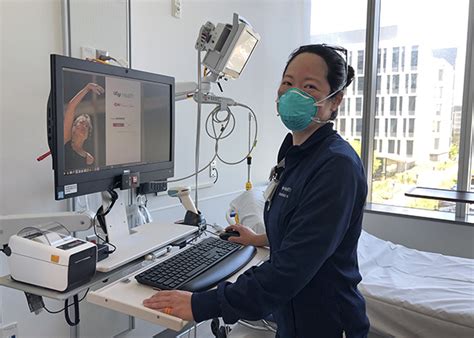Intro
Discover 9 non-bedside nursing jobs that leverage your nursing skills beyond traditional hospital settings. Explore roles in education, research, informatics, and more, offering flexibility and variety. Learn about these in-demand careers, their requirements, and growth prospects, and find your next nursing path.
Nursing is a diverse and rewarding profession that offers many career paths beyond traditional bedside care. While bedside nursing is a vital and fulfilling role, many nurses seek alternative career paths that leverage their skills and experience in different ways. In this article, we will explore nine non-bedside nursing jobs that you may find interesting and rewarding.

1. Nurse Educator
Nurse educators play a critical role in shaping the next generation of nurses. They teach nursing students in academic settings, such as colleges and universities, and help them develop the skills and knowledge needed to succeed in the profession. Nurse educators may teach in classrooms, simulation labs, or clinical settings, and may also develop curriculum and educational programs.
Key Responsibilities:
- Teach nursing students in academic settings
- Develop curriculum and educational programs
- Evaluate student learning and progress
- Collaborate with other healthcare professionals to develop educational programs
2. Clinical Research Nurse
Clinical research nurses play a crucial role in advancing medical knowledge and improving patient care. They work with researchers, clinicians, and patients to conduct studies, collect data, and analyze results. Clinical research nurses may work in hospitals, research institutions, or pharmaceutical companies.

Key Responsibilities:
- Conduct studies and collect data
- Analyze results and prepare reports
- Collaborate with researchers and clinicians to develop study protocols
- Ensure compliance with regulations and guidelines
3. Nurse Informaticist
Nurse informaticists use technology to improve patient care and healthcare systems. They design and implement healthcare information systems, analyze data, and develop policies and procedures to ensure effective use of technology. Nurse informaticists may work in hospitals, healthcare organizations, or technology companies.
Key Responsibilities:
- Design and implement healthcare information systems
- Analyze data to improve patient care and healthcare systems
- Develop policies and procedures for technology use
- Collaborate with healthcare professionals to develop technology solutions
4. Case Manager
Case managers work with patients, families, and healthcare providers to coordinate care and services. They assess patient needs, develop care plans, and connect patients with community resources. Case managers may work in hospitals, insurance companies, or healthcare organizations.

Key Responsibilities:
- Assess patient needs and develop care plans
- Coordinate care and services with healthcare providers
- Connect patients with community resources
- Evaluate patient outcomes and adjust care plans as needed
5. Nurse Recruiter
Nurse recruiters work with healthcare organizations to attract, select, and hire nursing talent. They develop recruitment strategies, screen candidates, and negotiate job offers. Nurse recruiters may work in hospitals, healthcare organizations, or recruitment agencies.
Key Responsibilities:
- Develop recruitment strategies to attract nursing talent
- Screen candidates and conduct interviews
- Negotiate job offers and salaries
- Collaborate with hiring managers to develop job descriptions and requirements
6. Health Coach
Health coaches work with patients to promote healthy behaviors and lifestyle changes. They assess patient needs, develop coaching plans, and provide support and guidance to help patients achieve their health goals. Health coaches may work in hospitals, healthcare organizations, or private practice.

Key Responsibilities:
- Assess patient needs and develop coaching plans
- Provide support and guidance to help patients achieve their health goals
- Collaborate with healthcare providers to develop coaching plans
- Evaluate patient progress and adjust coaching plans as needed
7. Nurse Writer
Nurse writers create content for healthcare organizations, publications, and companies. They write articles, blog posts, and educational materials to inform and engage healthcare professionals and patients. Nurse writers may work as freelancers or employees of healthcare organizations.
Key Responsibilities:
- Write articles, blog posts, and educational materials
- Conduct research and interviews to develop content
- Collaborate with editors and designers to develop content
- Ensure accuracy and quality of content
8. Telehealth Nurse
Telehealth nurses provide patient care remotely through phone, video, or messaging platforms. They assess patient needs, develop care plans, and provide support and guidance to patients in their homes or other settings. Telehealth nurses may work in hospitals, healthcare organizations, or telehealth companies.

Key Responsibilities:
- Assess patient needs and develop care plans
- Provide support and guidance to patients remotely
- Collaborate with healthcare providers to develop care plans
- Evaluate patient progress and adjust care plans as needed
9. Nurse Consultant
Nurse consultants work with healthcare organizations to improve patient care and outcomes. They assess organizational needs, develop strategic plans, and provide expertise and guidance to healthcare professionals. Nurse consultants may work in hospitals, healthcare organizations, or private practice.
Key Responsibilities:
- Assess organizational needs and develop strategic plans
- Provide expertise and guidance to healthcare professionals
- Collaborate with healthcare leaders to develop policies and procedures
- Evaluate patient outcomes and adjust plans as needed
What are some common non-bedside nursing jobs?
+Some common non-bedside nursing jobs include nurse educator, clinical research nurse, nurse informaticist, case manager, nurse recruiter, health coach, nurse writer, telehealth nurse, and nurse consultant.
What skills are required for non-bedside nursing jobs?
+Non-bedside nursing jobs require a range of skills, including communication, critical thinking, problem-solving, and leadership. Many non-bedside nursing jobs also require specialized skills, such as technology expertise or research skills.
How can I transition to a non-bedside nursing job?
+To transition to a non-bedside nursing job, consider developing new skills, networking with professionals in your desired field, and exploring job opportunities that match your skills and interests.
We hope this article has provided you with a comprehensive overview of non-bedside nursing jobs and inspired you to explore new career paths. Whether you're looking for a change of pace or seeking to leverage your skills in new ways, there are many rewarding non-bedside nursing jobs to consider.
